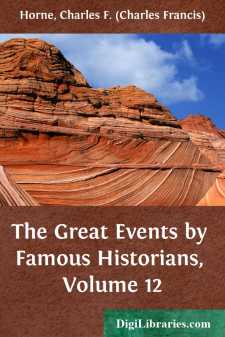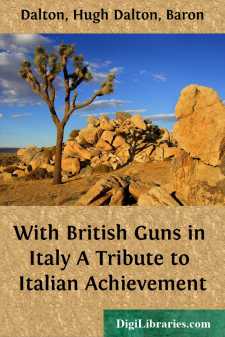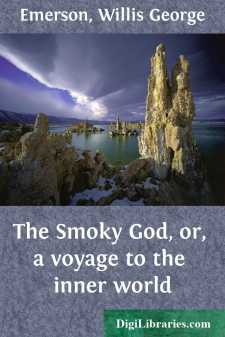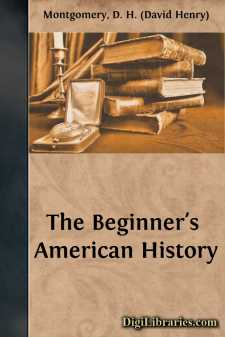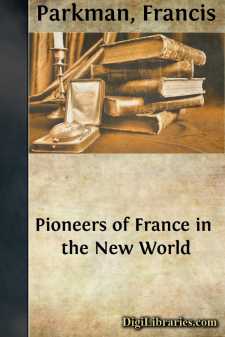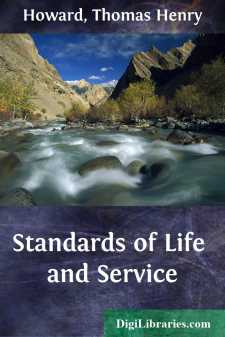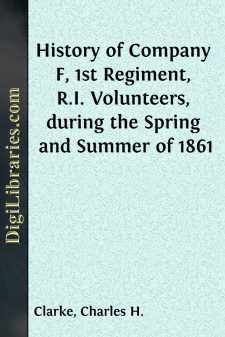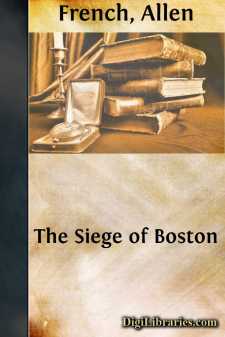History
- Africa 30
- Americas (North Central South West Indies) 50
- Ancient 68
- Asia 58
- Australia & New Zealand 8
- Canada 41
- Caribbean & West Indies 1
- Civilization 20
- Eastern Europe 12
- Europe 310
- Expeditions & Discoveries 60
- General 77
- Historical Geography 1
- Jewish 9
- Latin America 3
- Medieval 8
- Middle East 13
- Military 248
- Revolutionary 8
- Study & Teaching 5
- United States 353
- Western Europe 56
- World 13
History Books
Sort by:
CHARLES F. HORNE It is related that in 1661, on the day following the death of the great Cardinal Mazarin, the various officials of the State approached their young King, Louis XIV. "To whom shall we go now for orders, Your Majesty?" "To me," answered Louis, and from that date until his death in 1715 they had no other master. Whether we accept the tale as literal fact or only as the...
more...
CHAPTER I THE ANGLO-ITALIAN TRADITION AND ITALY'S PART IN THE WAR Anglo-Italian friendship has been one of the few unchanging facts in modern international relations. Since the French Revolution, in the bellicose whirligig of history and of the old diplomacy's reckless dance with death, British troops have fought in turn against Frenchmen and Germans, against Russians and Austrians, against...
more...
PART ONE. AUTHOR'S FOREWORD I FEAR the seemingly incredible story which I am about to relate will be regarded as the result of a distorted intellect superinduced, possibly, by the glamour of unveiling a marvelous mystery, rather than a truthful record of the unparalleled experiences related by one Olaf Jansen, whose eloquent madness so appealed to my imagination that all thought of an analytical...
more...
CHRISTOPHER COLUMBUS CB. 1. Birth and boyhood of Columbus.—Christopher Columbus,[2] the discoverer of America, was born at Genoa,[3] a seaport of Italy, more than four hundred and fifty years ago. His father was a wool-comber.[4] Christopher did not care to learn that trade, but wanted to become a sailor. Seeing the boy's strong liking for the sea, his father sent him to a school where he could...
more...
by:
Francis Parkman
INTRODUCTION. The springs of American civilization, unlike those of the elder world, lie revealed in the clear light of History. In appearance they are feeble; in reality, copious and full of force. Acting at the sources of life, instruments otherwise weak become mighty for good and evil, and men, lost elsewhere in the crowd, stand forth as agents of Destiny. In their toils, their sufferings, their...
more...
PREFACE The following pages contain reports of addresses delivered by Commissioner Howard, of our International Headquarters, during an important series of Holiness Meetings held in the Congress Hall, London, principally in 1908. Those Meetings were widely used by God, and at my request the Commissioner has revised the shorthand reports of his words for this volume. We now send forth his messages in...
more...
CHAPTER I. CALL TO ARMS. Early in the month of April, 1861, several of the Southern States having withdrawn from the Union, forts, arsenals and navy yards within the limits of those States were taken possession of by the Confederate forces. On the 12th of April, Fort Sumter, at Charleston, S. C., was fired upon, and after two days' bombardment by the rebels, commanded by General Beauregard, the...
more...
by:
Hugh Miller
CHAPTER I."Ye gentlemen of England,Who live at home at ease,Oh, little do ye think uponThe dangers of the seas."—Old Song.Rather more than eighty years ago, a stout little boy, in his sixth or seventh year, was despatched from an old-fashioned farm-house in the upper part of the parish of Cromarty, to drown a litter of puppies in an adjacent pond. The commission seemed to be not in the least...
more...
PREFACE In the month of August, 1841, I attended an anti-slavery convention in Nantucket, at which it was my happiness to become acquainted with FREDERICK DOUGLASS, the writer of the following Narrative. He was a stranger to nearly every member of that body; but, having recently made his escape from the southern prison-house of bondage, and feeling his curiosity excited to ascertain the principles and...
more...
by:
Allen French
CHAPTER I BEGINNINGS AND CONDITIONS The Siege of Boston was the culmination of a series of events which will always be of importance in the history of America. From the beginning of the reign of George the Third, the people of the English colonies in the new world found themselves at variance with their monarch, and nowhere more so than in Massachusetts. Since the New England people were fitted by...
more...


